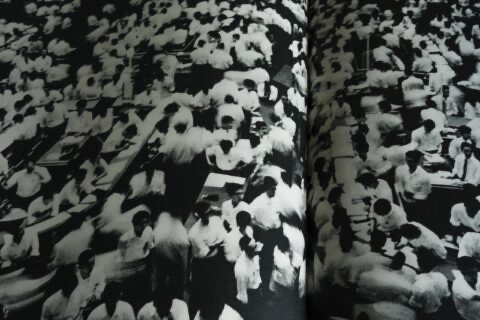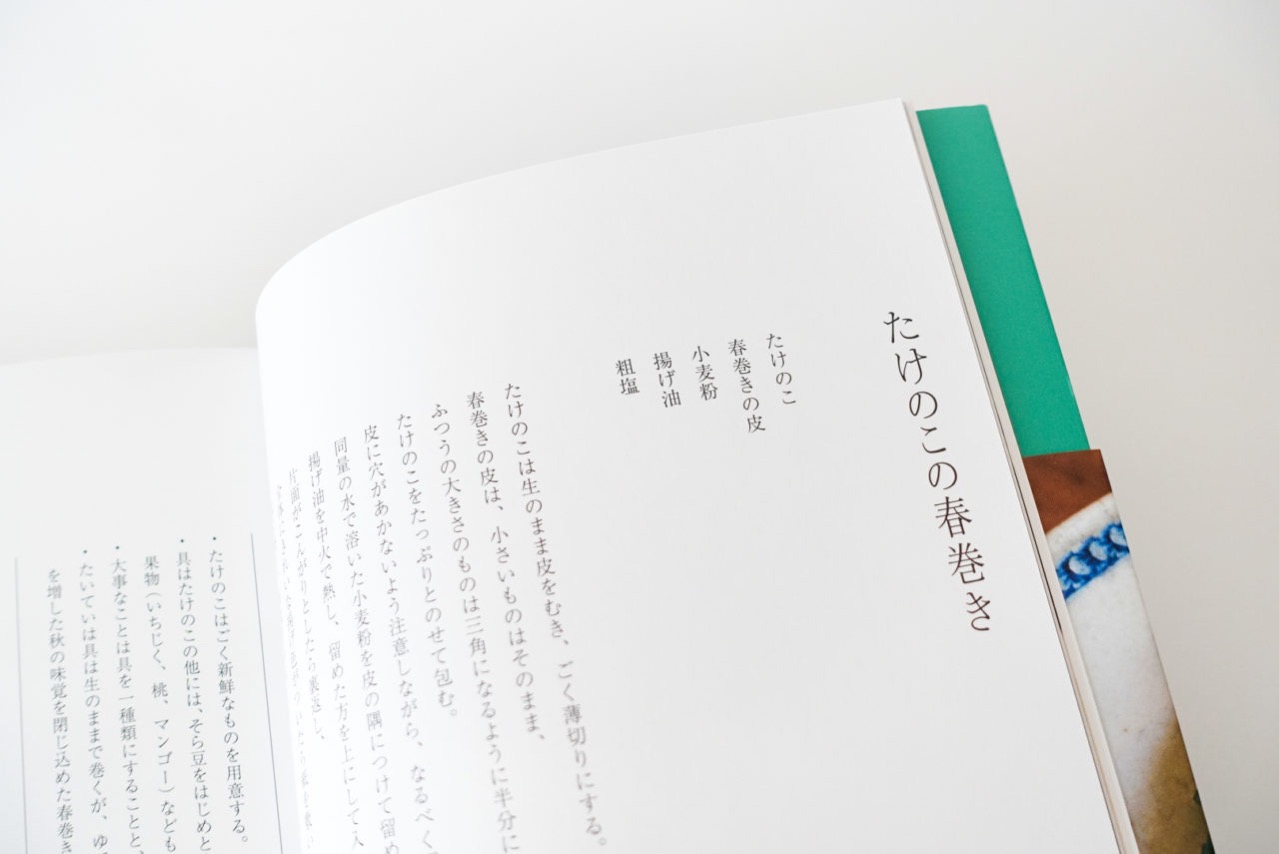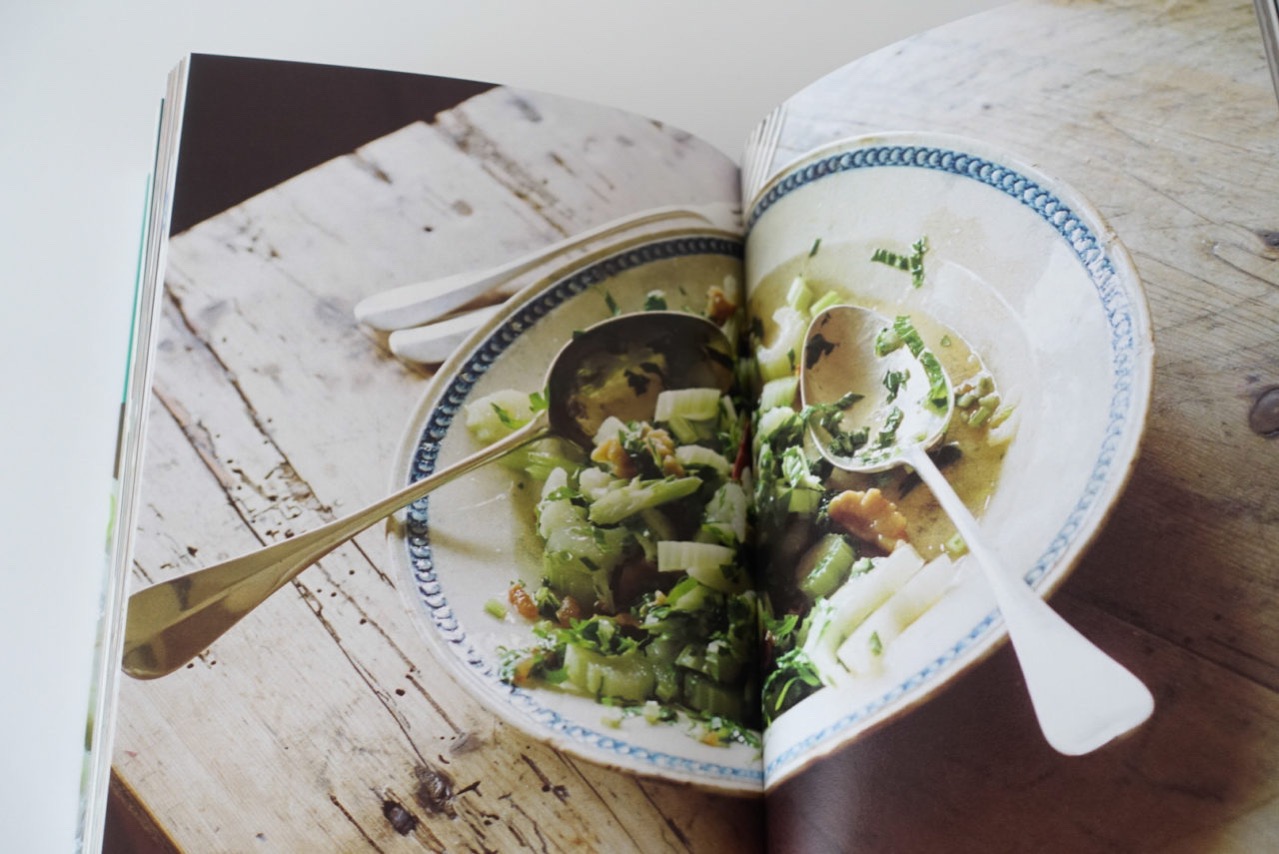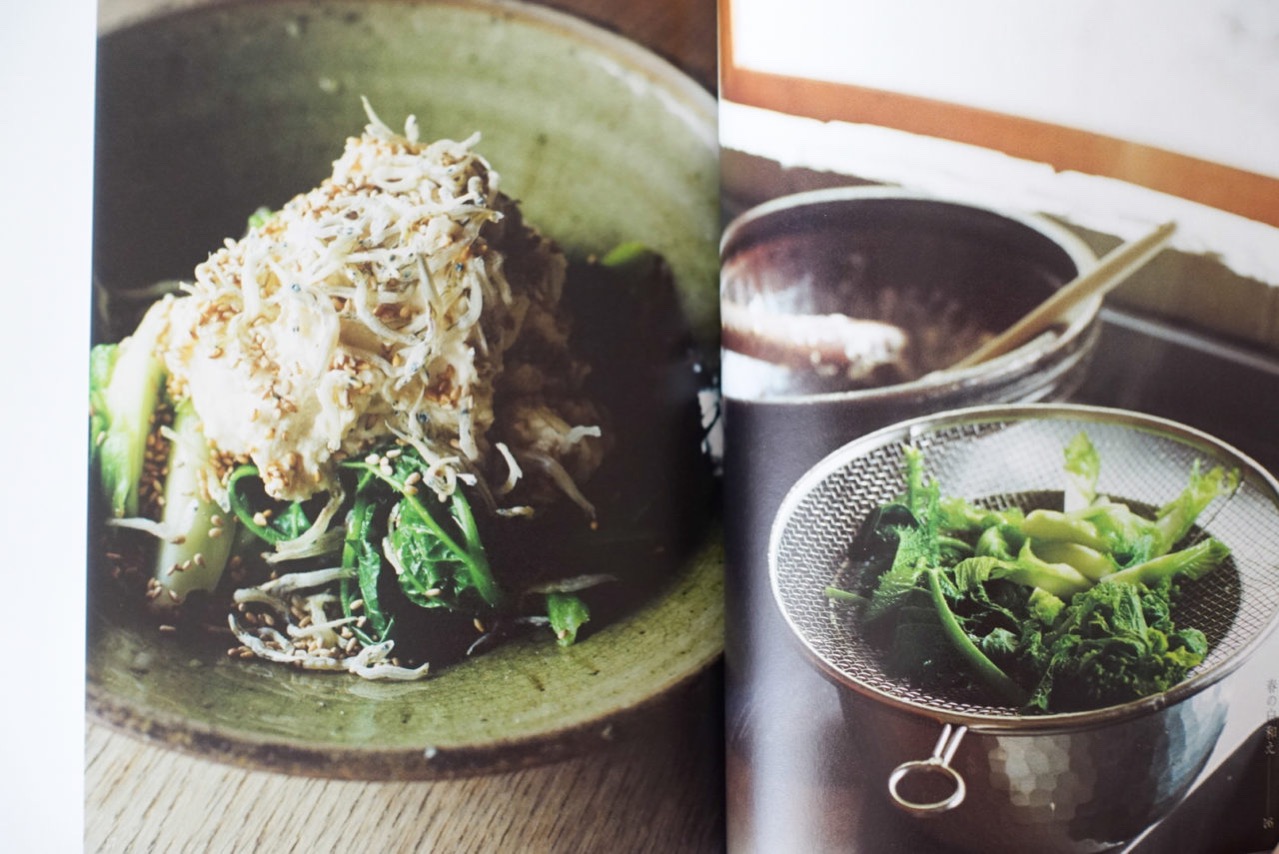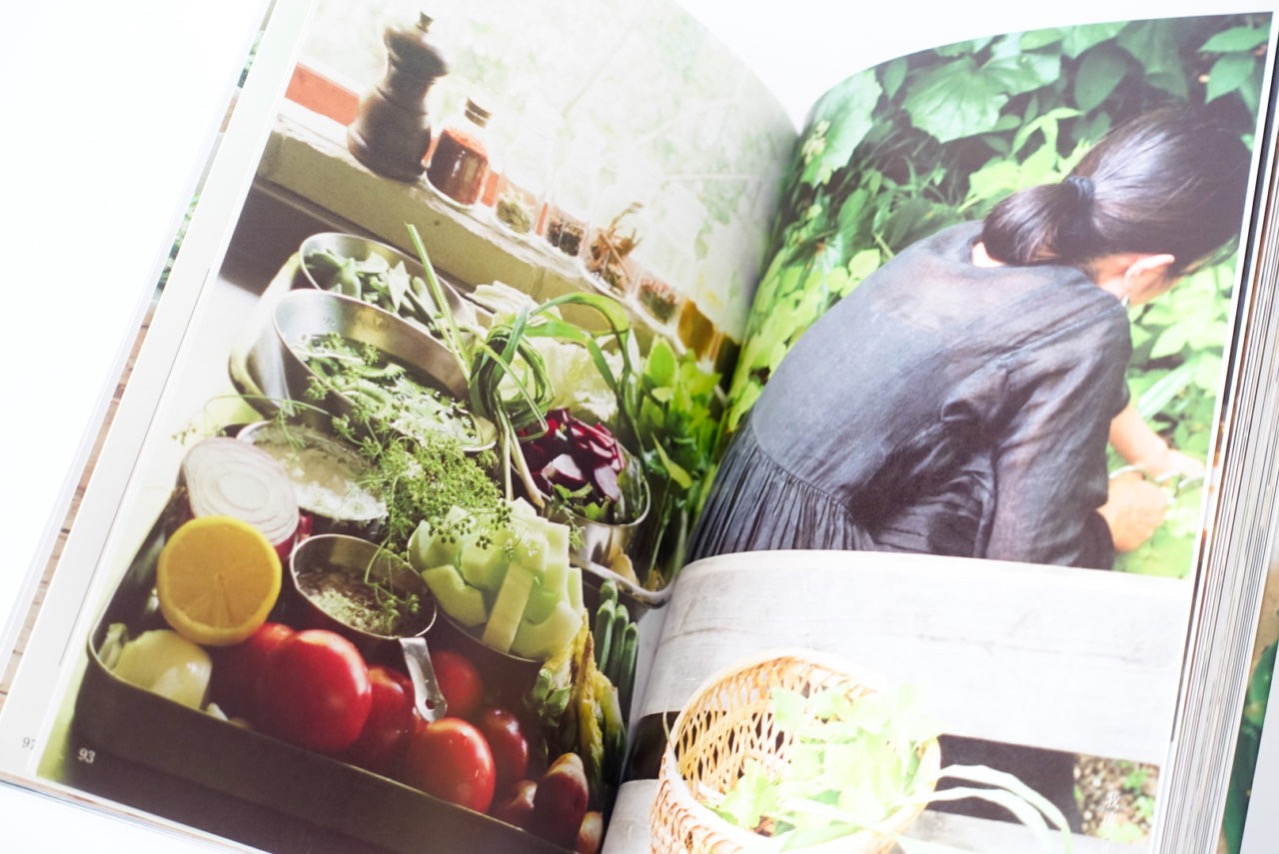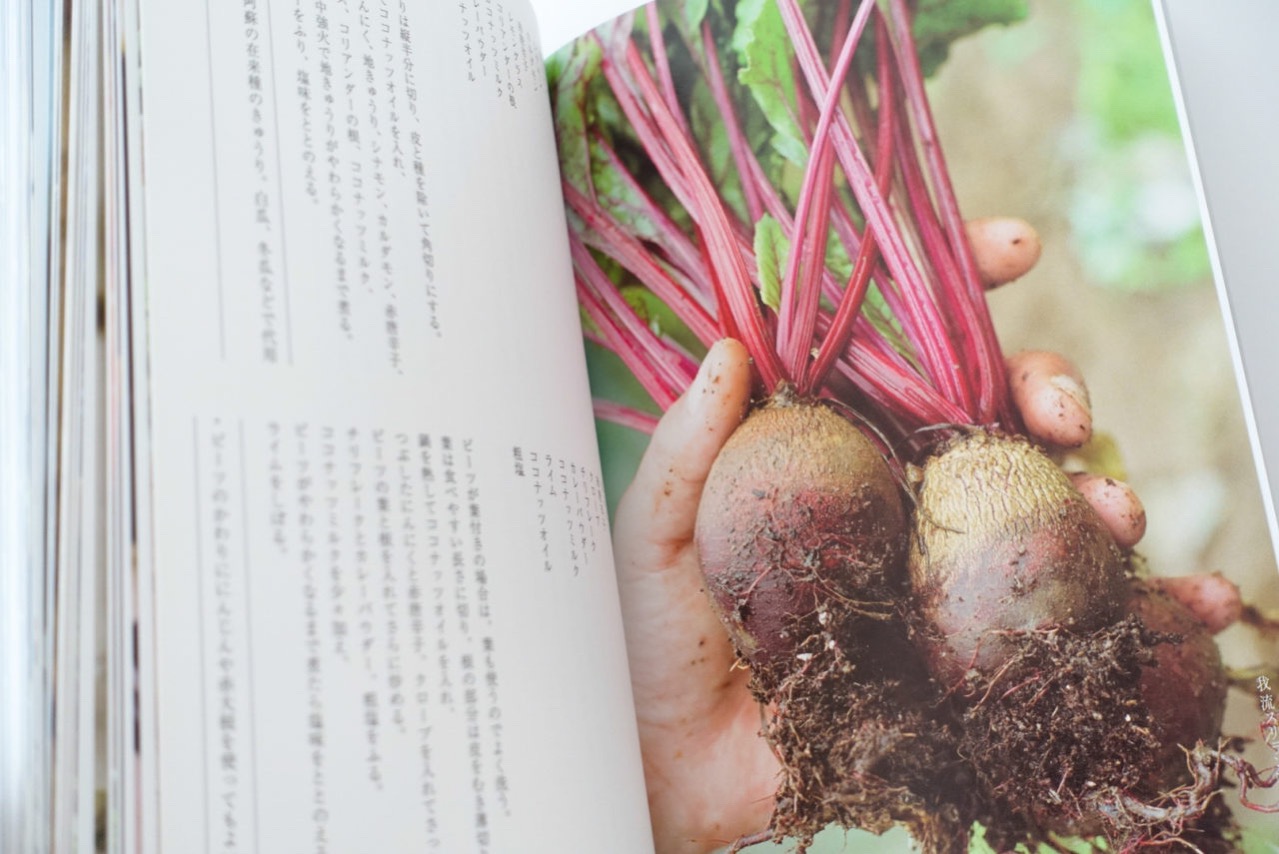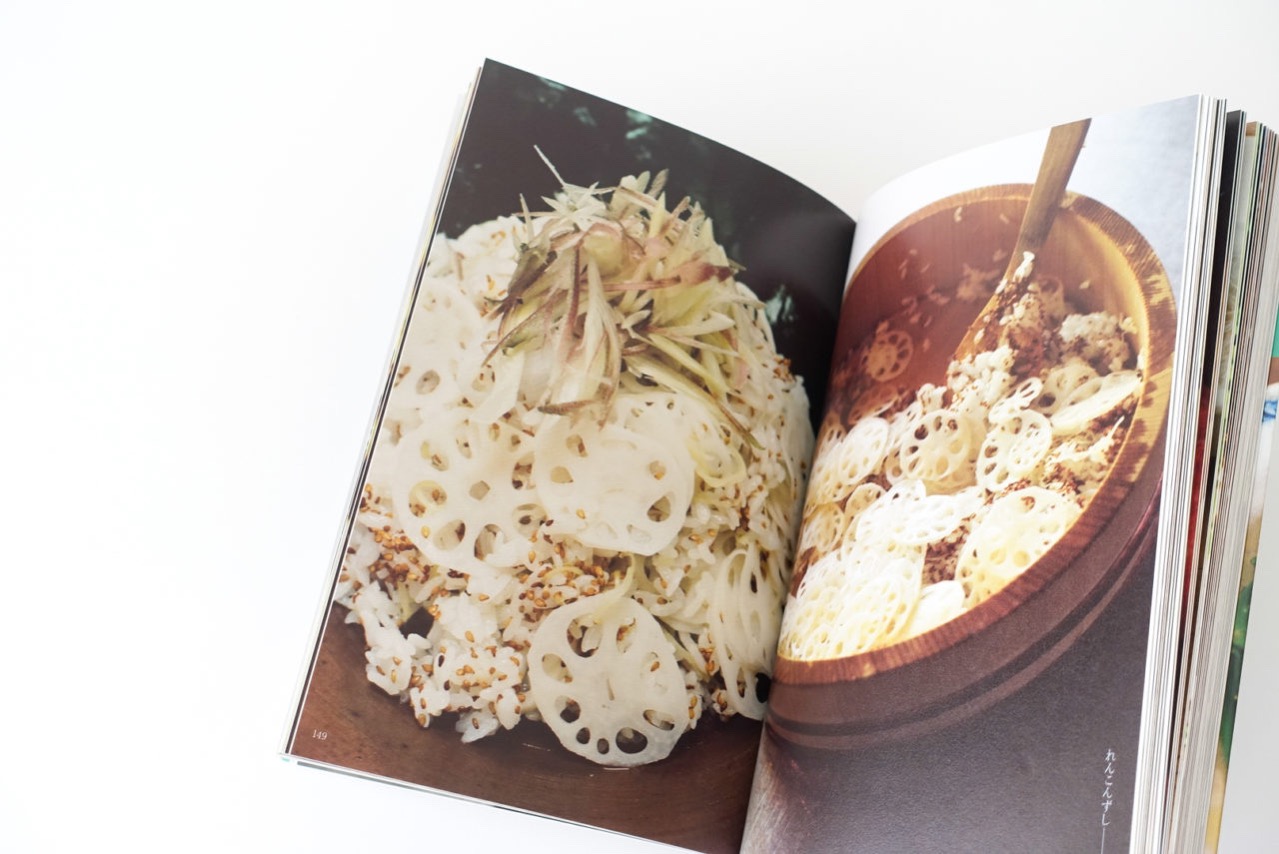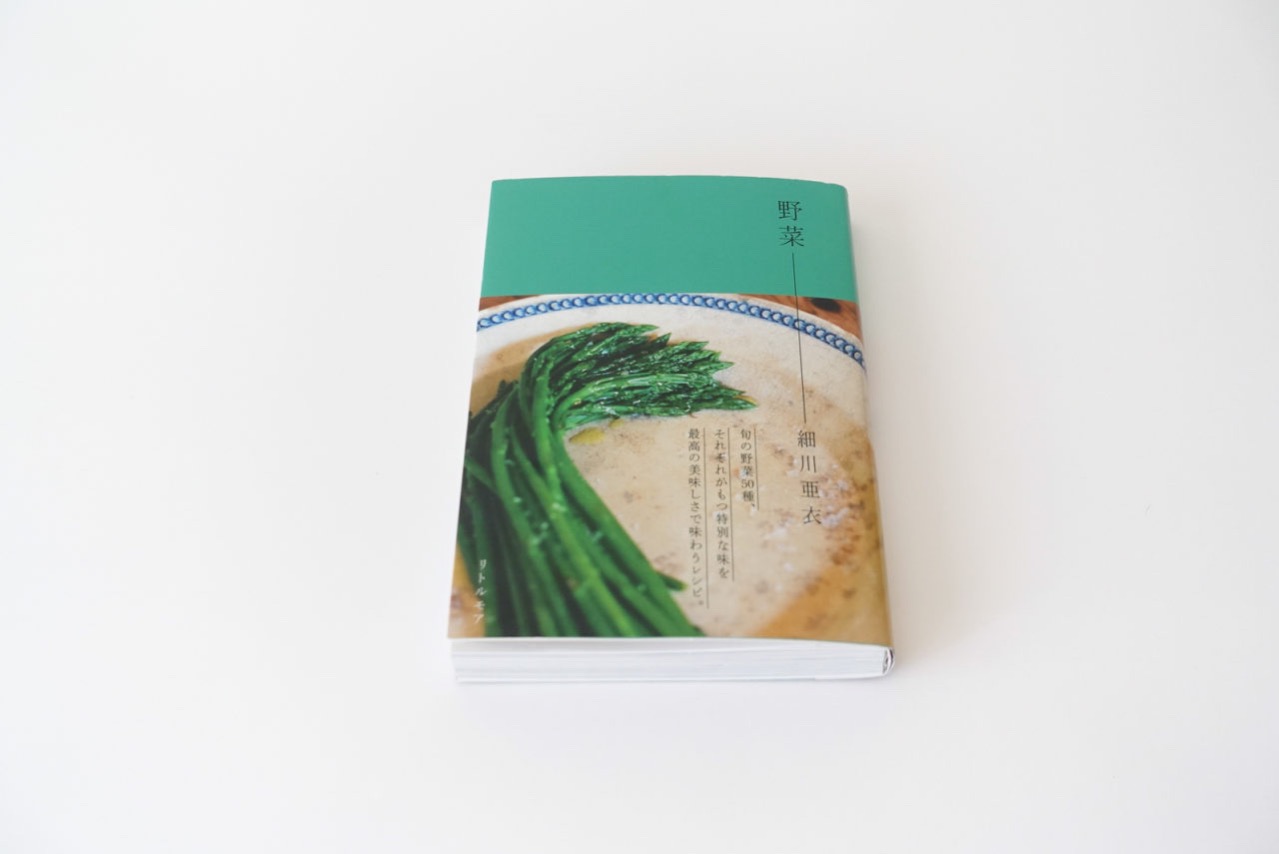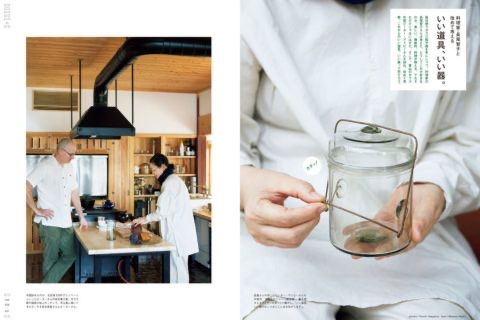細川亞衣的烹飪書有點難讀,步驟非點列,材料也沒有註明份量,初學烹飪的,或會對之手足無措吧。關於後者,細川亞衣說,是因為她覺得大家只要依照自己的喜好、當天的心情,自行判斷就可以了。至於調味料,因為大家用的鍋子、爐具的種類,會影響所需要的份量,唯一能做了自己喜歡的味道的方法,就是反反覆覆地嘗試、在烹調時,不斷地試味而已。過程裡,最可靠的,不是烹飪書,而是自己的舌頭。
The recipe book written by Ai Hosokawa is rather hard to follow. Not only are the steps not put in order, but the ingredients are also listed out without the exact portion. This book is probably very confusing for readers who are not good at cooking. Hosokawa does not instruct her readers to measure the ingredient because she believes the amount can always be adjusted based on people’s preference and their mood. As for seasoning, since every family uses different types of cooking utensils that can affect the way seasoning the food, the best solution is to keep trying and taste it ourselves. When it comes to cooking, our own tongues are way more reliable than any cookbook.
我常覺得,好的烹飪書,不只教會我們做某一道菜,更教會我們某一種生活態度、應附生活的方法。像主張一菜一汁的土井善晴,提出不煮高湯,只以家裡現有的蔬菜來做味噌湯,建議讀者不要太介意味道的偏差,即使今天的食材配搭不妥,味道不佳,那也是屬於當天的味道。他提出了一個不執著於成果,享受每天高低起伏的生活方式。至於細川亞衣,則要我們相信自己的直覺與感觀,聆聽自己的聲音。
細川亞衣是日本著名的料理家,早前介紹過位於尾道的酒店LOG,當中的餐廳的料理,便是由她監修的。生於東京的她,於大學畢業後便前往意大利學習烹飪,其後走遍歐洲各地,邊旅行邊學習當地的料理。對歐洲各地的飲食文化有深入認識,並融滙貫通於自小便接觸的日本菜餚之中,使她造出的料理有如添加了特殊的魔法——味道及食材似曾相識,調味也簡單不過,不少甚至只用鹽與胡椒而己,但因為處理方法細微的差異,便做出不同層次的美味來。
To me, a good cookbook teaches us more than just cooking a dish; it can inspire the readers of some lifestyles and show them to appreciate life itself. Yoshiharu Doi is the advocate of “one side dish, one soup”; his way of cooking soup is somewhat unconventional. Instead of using dashi (Japanese cooking stock) as the base, one can easily make tasty miso soup with vegetables immediately available at home. He suggested to his readers that taste is not the most important thing, the ingredients today may not be the best match, even if it is not the most delicious dish, it is, after all, the taste of the day. His suggestion is to put aside the determination of achieving the best flavour but to enjoy the ups and downs of everyday life. Going back to Ai Hosokawa, she teaches us to have faith in our instincts and senses, she also tells us to listen to our inner voice.
Hosokawa is a renowned chef in Japan, she is also the person behind the cuisine of LOG Hotel in Onomichi that we talked about earlier. The Tokyo-born Hosokawa went to Italy to study culinary arts after graduating from university. Afterwards, she has travelled around Europe to learn from different local cuisines. She successfully incorporates her in-depth knowledge of European cuisine into the Japanese dishes that she has tasted ever since childhood. The crossover between the east and the west gave her cooking a magical touch that can be familiar yet full of surprises. Her cooking is very simple, some of them are only seasoned with salt and pepper, but the distinctive way of preparing the food simply brings out several layers of indulging flavour.
這本《野菜》是細川亞衣於兩年前出版的烹飪書,當中收集了六十個蔬菜料理的食譜,每個食譜,除了烹調方法之外,細川亞衣還仔細地說食材的特色,使用不同油或醋,會有怎樣不同的效果,又或是同樣的食譜有甚麼可行的變化等。讀著讀者,對於烹飪的腦筋也柔軟起來。我尤其喜愛內容的照片,很多料理的特寫照,卻不刻意擺盤;有她的手部動靜,卻不為說做菜時的步驟示範,偶爾加插她於田裡採摘蔬菜、與人用餐時的照片。所謂的烹飪,並不只是關於桌上一盤盤的料理,還關於人與自然及土地、人與人之間綿密的連結。
Vegetables is a cookbook Ai Hosokawa published two years ago that collects recipes of 60 vegetable dishes. While introducing the cooking steps, Hosokawa also explains to her readers the characteristics of each ingredient that she uses. She elaborates in detail how various types of oil and vinegar can affect the food, as well as the other possible variation of the recipe. Reading her book made me realize cooking can be, in fact, very flexible and full of possibilities. What I like the best about this book is the photography. There are many close-ups of the food she prepared, but none of them is arranged in a pretentious way. Photos of her hands merely show the movement without being an aid to clarify a cooking step. On top of these, there are also photos of her harvesting in the field or enjoying a meal with friends and family. Cooking is, after all, more than preparing dishes that are to be served; it is an activity that is connected to human, nature, the land, as well as the interpersonal relationship.
